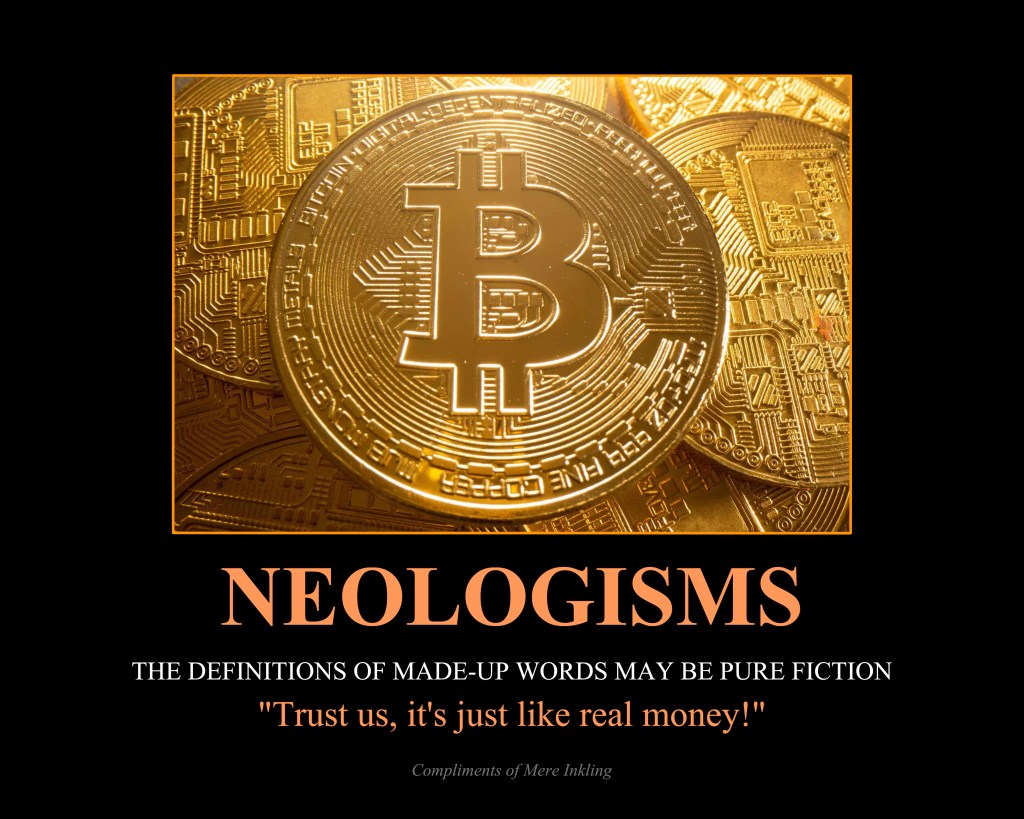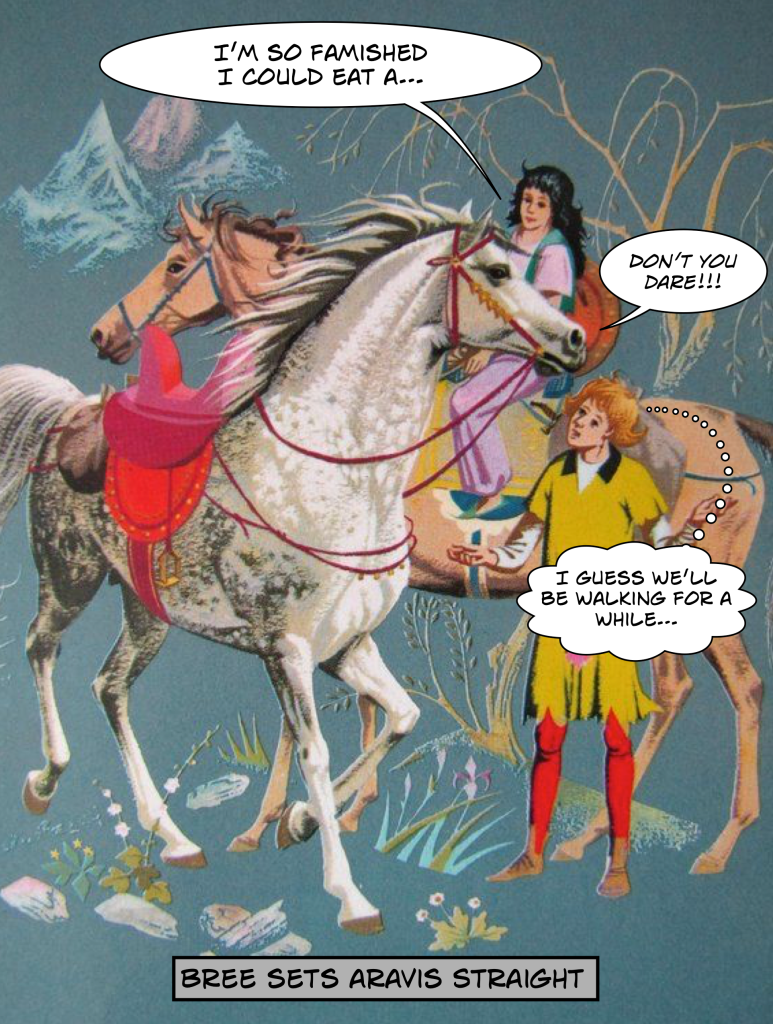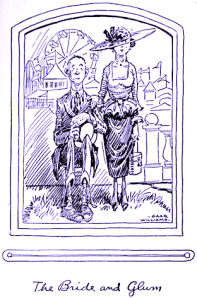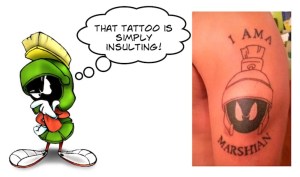Here at Mere Inkling our admiration for C.S. Lewis moves us to emulate some of his practices. Thus, we are avid readers and we also enjoy learning new words.
Some of us even enjoy inventing new words. No, we’re not so presumptuous as to desire to wend our ways into the dictionary. We just find this creative game to be both fun and useful for promoting mental health.
The challenge is providing rational definitions for our neologisms. These meanings can be serious or absurd; that doesn’t matter. Here are four I recently devised. (More, from years past, are available in the links I have included above.)
: Zambaloney : noun
A succulent cut of meat served only in skating rinks while the ice is being resurfaced during formal sporting competitions.
: Teguchigulper : noun
The indigenous name for the Honduran species of Chupacabra.
: Belladonut : noun
The presentation of poison derived from the perennial Atropa belladonna in appealing confectionaries. See also, doughnut.
: Sinderella : noun
The Brothers Grimm story about a beneficent stepmother who learns her two biological daughters are being terrorized by their physically beautiful yet wicked stepsister.
We’re Not Alone
If you have tried your hand at this, or at least think it’s curious, you might be surprised to learn there are online “word generators” that perform at least part of this function. Let me mention a couple before sharing some more of my own inventions.
Unfortunately, some only toss out made up words, in literary isolation. This is the case of Random Word Generator, which did, however, suggest the intriguing word “picneted.”
Nonsense Word Generator “generates nonsense words based on a frequency list of phonemes as they occur in legitimate English words.” They claim “an actual word may slip through occasionally but it should mostly generate pronounceable gibberish.”
Since gibberish isn’t what I’m after, and I haven’t yet found an artificial intelligence website offering what I seek, it’s up to human beings to fill the gap. I hope you enjoy at least one or two of my other neologisms which follow.
New Words & Apropos Definitions
: Dramadairy : noun
A business offering various products created from camelid milk. Suspense is generated by the uncertainty as to the particular species from the genus Camelus that provided the day’s primary ingredient.
: Sir Mize : proper noun
A minor noble of the Carolingian dynasty noted for his skill at accurately assessing situations despite lacking clear evidence for his hypotheses.
: Fleedom : verb
The attempt to escape restrictions imposed by an autocratic government.
: Califate : noun
The final destiny awaiting those who seek to impose their religion on others by means of violence rather than through thoughtful conversation and compassionate service.
: Hippocampus : noun
Commonly considered a region of the brain, the word originally referred to the special academies where priestesses of Taweret schooled Egypt’s hippopotami to serve Pharaoh.
: Integreation : verb
The process through which individuals or different groups are incorporated into a common whole, resulting in a truly synergistic benefit to all.
: Sinergy : noun
The crippling illusion that one should embrace diverse expressions of evil simply because they have become a standard practice under a decadent worldview.
: Laboratorinthine : adjective
Applied to extremely complex, often inescapable, research and medical facilities hosting arcane experiments on human subjects. See also, “science fiction and horror tropes.”
: Confort : noun, verb
noun : The false sense of security felt by a vulnerable individual who is being successfully deceived by a criminal. See conforter.
verb : The act of pretending to render aid or support to someone in need while laying the groundwork for a malevolent action toward them.
: Pintacostal : noun
Members of an ecstatic religious sect who allege that their ancestors arrived in America in the fifteenth century aboard one of Christopher Columbus’ smaller caravels.
: Calumknee : noun
Defamatory statements, especially directed toward athletes, related to the largest joint in a particular person’s anatomy.
: Commaraderie : noun
The collegiality felt by writers who advocate the use of the Oxford comma in lists of three or more items.
: Peripathetic : adjective
Traveling from place to place and job to job without ever finding the right fit.
: Lyberry : noun
A fruit concoction comprised of berries cleansed with minute amounts of lye water, which can be fatal if mismeasured. Not to be confused with the tragic mispronunciation of “library.”
: Indogtrination : noun
The process of training people to uncritically embrace a canine belief system and obedience to arbitrary and sometimes self-injurious commands. Antonym of catechesis.
: Banalgesic : noun
A drug designed to reduce the pain induced by participating in a banal conversation.
: Farmageddon : noun
Subterranean postapocalyptic nutrient harvesting plants specializing in either edible algae or plant-based meat alternatives (derived from algae).
: Olympipad : noun
Special edition of Apple’s iPad scheduled for release in conjunction with Olympiad XXXIV in Los Angeles in 2028.
And, as a final tribute to that great writers and saints, C.S. Lewis and J.R.R. Tolkien:
: Nearnia : noun
A fantastical world which does not require a Wardrobe to discover, but is as close as one’s own inspired imagination. See also, “Median Earth.”













